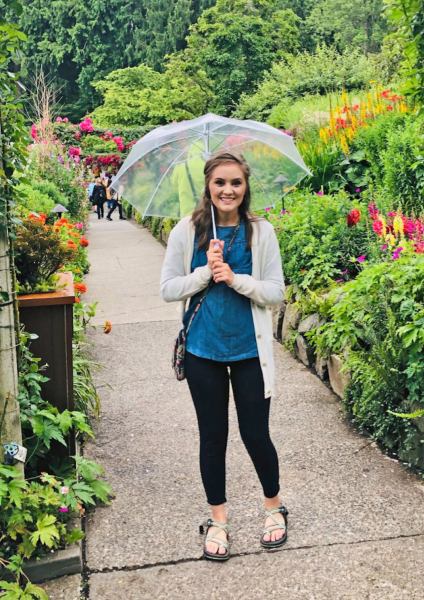What does it take to be an outstanding young teacher? Avrial Turner outlines her priorities for being an effective teacher.
Avrial Turner (B.M.E. ‘19) is in her third year at Kyffin Elementary School in the Jefferson County School District. She recently won the Outstanding Young Music Educator Award at CMEA.
There are many attributes that make Turner outstanding, but one that truly stands out is her inclusivity.
“I really try to be intentional in talking with kids about the choices that I’m making, [while] honoring them and their upbringing and cultures. We have a large Chinese and Korean population within our school, and I make sure that we honor and give them windows into other cultures and mirrors of themselves. We do this through rep, but we also have composer projects, and I’m not going to just pick composers of the past, but give them modern composers that represent what the world is today. “
Building a strong community is a huge priority for Ms. Turner, and that includes both students and staff.
“The relationships with other teachers and admin can make or break your experience at a school. Make sure you know your admin really well and treat them nicely, that you give coffee to your secretary, and you do anything they ask of you because they run the school. And whoever your maintenance staff are, you treat them with the utmost respect because they also run the school.”
This need to connect has worked to Turner’s advantage, prompting get-togethers with fellow alumni from CSU. She has a group of band and choral teachers who meet on zoom every month or so, catch up, and find ways to navigate some of the challenges of being new teachers.
“As a music teacher, you’re such an island no matter what grade level you’re at, so to have a group of people you can talk to is really exciting.”
Another important aspect of Turner’s teaching is incorporating Social Emotional Learning throughout her curriculum. Turner has been a teacher throughout the pandemic, observing student behavior before, during, and after the peak of COVID. In the post-COVID world, teachers are in need of a number of strategies to help with trauma and intense feelings that are surfacing.
“I use a lot of breathing regulation as transitions for kids. I think that post-pandemic, kiddos have really struggled with their self regulatory skills. When they were behind a screen, they could just mute themselves, walk away, they could do whatever they wanted whenever they wanted. Now they’re really struggling with self regulation, especially when things can get exciting, which happens a lot in a music room. So instead of being excited, we’re screaming, instead of being upset about something, we’re having explosive episodes.”
These breathing techniques help calm the nervous system, and when that is under control, then it is easier for teachers to address some of these big feelings.
Another technique Turner uses for students is teaching them to use mantras as a coping device.
“I’ve got a kindergartener, and this kindergartener thinks they’re a bad kid. They’ve been convinced they’re a bad kid, so they act like a bad kid. So something that works for him is coming up with a mantra and repeating it. I ask him ‘what kind of kid are you?’ and he says ‘I’m a great kid.’ And I tell him ‘I know you’re a great kid. I’m so glad you know that you’re a great kid. How are you going to show it today?’”
Throughout her first years, she has come back to what she learned at CSU.
“I do not know if I would be able to do elementary music if I had not gone to CSU. We have a whole year of elementary methods, and I wouldn’t have known where to start without those classes. They gave a really wonderful foundation to start on.”

